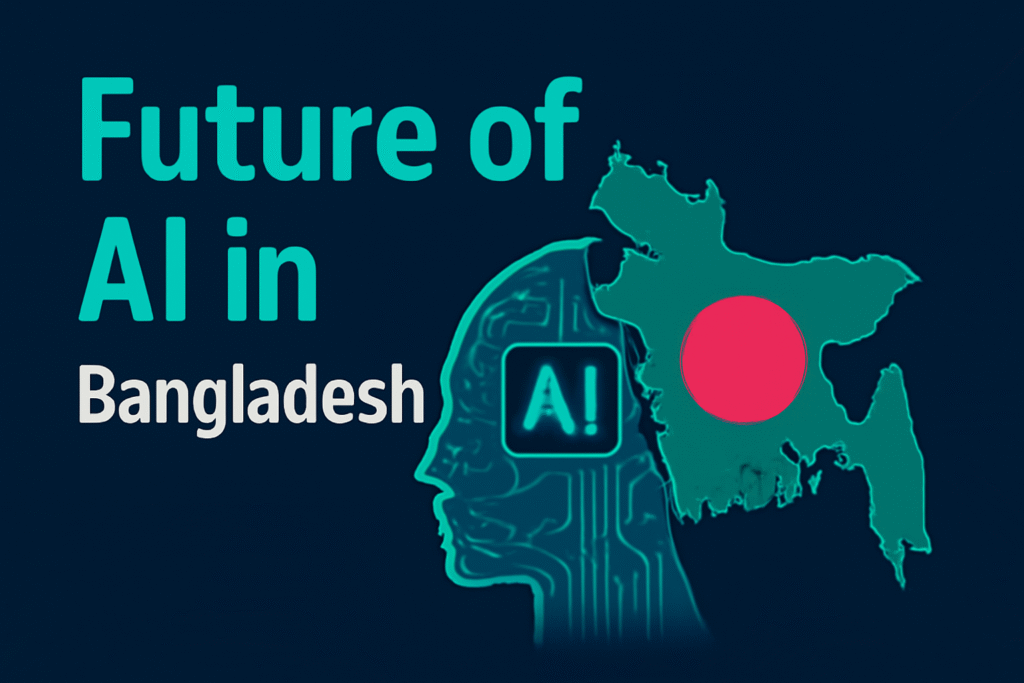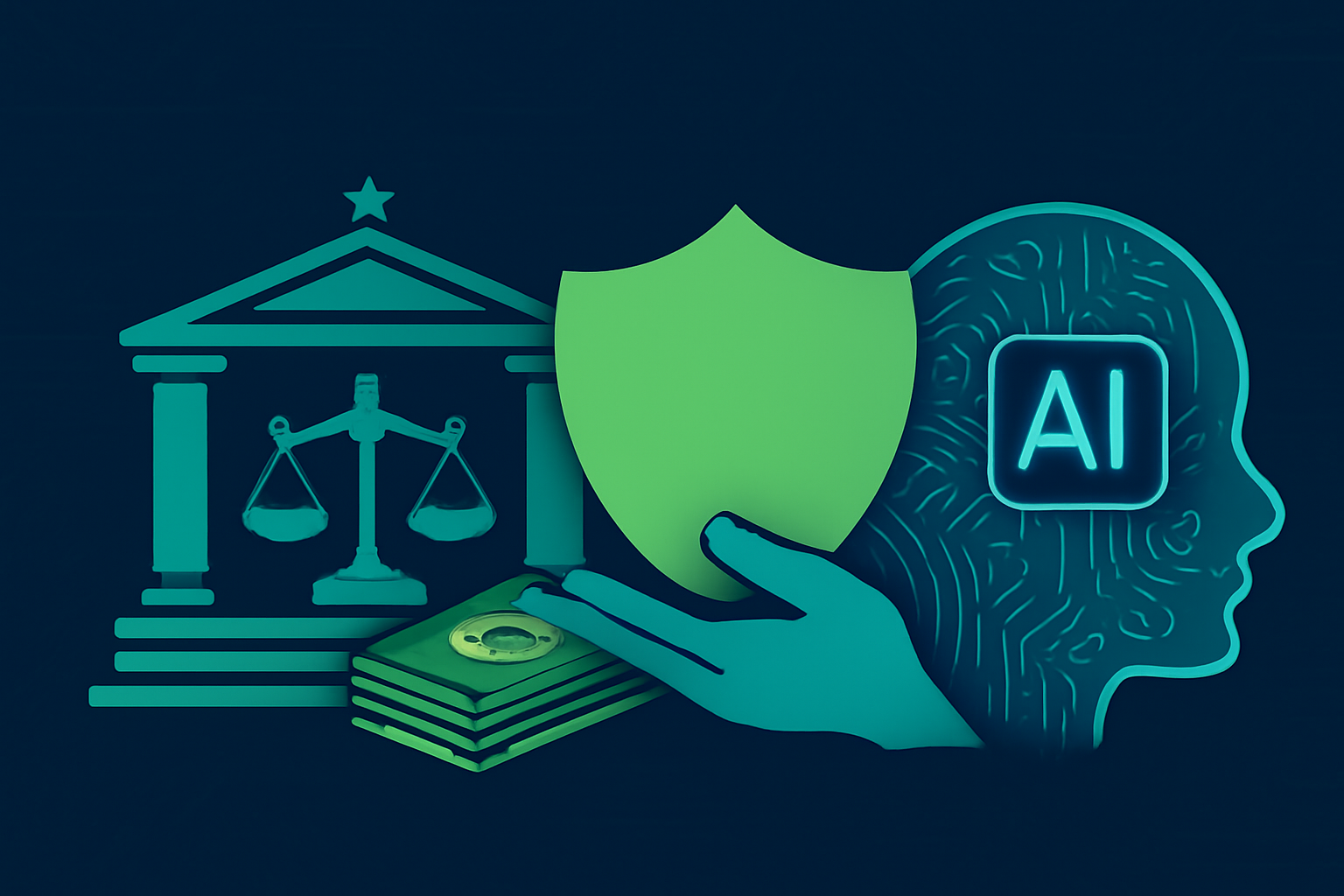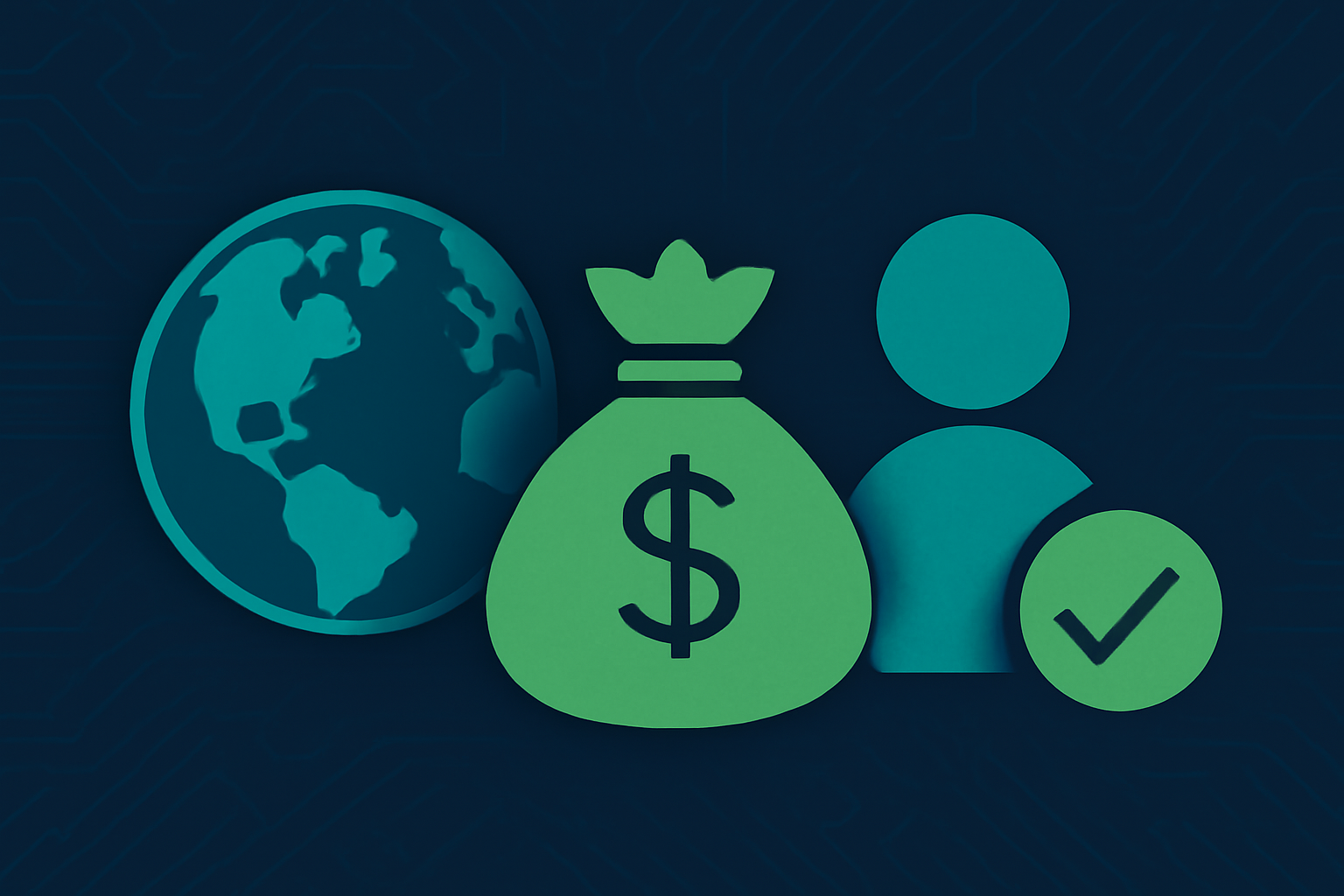
Introduction
This article explores the future of AI in a third world country like Bangladesh and how the country can advance with its help. Artificial Intelligence (AI) is rapidly transforming the global landscape, driving innovation, efficiency, and growth across all sectors of society. For developing countries like Bangladesh, AI presents a unique opportunity to leapfrog traditional stages of development and address long-standing challenges in areas such as healthcare, agriculture, education, and governance. While the country faces limitations in infrastructure, resources, and technical expertise, the strategic adoption of AI technologies could significantly accelerate socio-economic progress. This report explores the future of AI in Bangladesh, examining its potential benefits, current barriers, and the steps necessary to harness its full potential for national development. Through targeted investment, policy reform, and capacity building, Bangladesh can position itself to thrive in the emerging AI-driven global economy.
Current State of AI and Digital Infrastructure in Bangladesh
Bangladesh has made notable progress in its digital transformation through initiatives like “Digital Bangladesh”, which has increased access to technology across urban and rural regions.
However, AI development is still in its infancy. The country lacks widespread access to advanced computing infrastructure, high-speed internet, and quality data centers required for AI research and deployment. While some universities have begun offering AI-related courses, there is no national AI curriculum or consistent research funding. Most AI development is concentrated in small startups or academic labs, often with limited scalability.
Furthermore, Bangladesh lacks a centralized open-data ecosystem, which is crucial for training AI models. The foundational technologies like cloud computing, IoT, and big data are still developing, making AI integration more difficult.
Opportunities for AI in Key Sectors
AI has vast potential to transform sectors that are vital to Bangladesh’s development:
- Agriculture: AI-powered tools can assist farmers in predicting crop yields, optimizing irrigation, and identifying pests and diseases through image recognition. This can lead to more efficient resource use and increased productivity.
- Healthcare: AI can help with early diagnosis of diseases, patient data management, telemedicine, and automating administrative tasks in hospitals. For a country with limited doctors and medical facilities, AI can extend the reach of healthcare services to underserved areas.
- Education: AI-driven platforms can offer personalized learning paths, automate grading, and provide real-time feedback to both teachers and students. This is especially valuable in rural areas where access to quality education is limited.
- Finance: AI applications like credit scoring, fraud detection, and chatbots can improve financial inclusion and customer service in the banking sector. AI can also support microfinance institutions in assessing loan risks for unbanked populations.
- Public Services: AI can enhance e-governance by automating workflows, detecting corruption, and improving citizen services through chatbots and predictive analytics.
Role of Government and Policy Frameworks

Government leadership is essential for building a sustainable AI ecosystem. Some critical steps include:
- National AI Strategy: Bangladesh needs a clear national AI policy that aligns with development goals, outlines sectoral priorities, and promotes responsible AI use.
- Funding and Incentives: Public investment in AI research and infrastructure is crucial. The government can offer grants, tax breaks, and innovation hubs to encourage private sector involvement.
- Regulations and Standards: Developing regulatory frameworks that address data privacy, ethical use of AI, algorithmic transparency, and cybersecurity will build trust and safeguard citizens.
- Public-Private Partnerships (PPPs): The government can collaborate with tech firms, startups, and international organizations to implement pilot projects and scale successful solutions.
- AI in Public Services: By using AI to improve efficiency in services like traffic management, disaster response, and public health monitoring, the government can demonstrate AI’s value and build public confidence.
Building AI Talent and Awareness
Developing a skilled workforce and fostering innovation are central to AI advancement:
- Educational Reform: Universities and technical colleges should update curricula to include AI, machine learning, data science, and ethics. Creating interdisciplinary programs that link AI with business, healthcare, and agriculture will encourage applied learning.
- Skill Development Programs: Short-term training courses, coding bootcamps, and online certifications can rapidly upskill students and professionals. These programs should be made accessible in both urban and rural areas.
- Research and Innovation Centers: Establishing AI research labs and centers of excellence can promote innovation and collaboration between academia and industry.
- Mentorship and Exchange Programs: Collaborations with international universities and companies can provide mentorship, research opportunities, and exposure to global best practices.
- Raising Awareness: Workshops, webinars, and community events can help the general public, students, and small business owners understand how AI can improve their lives and livelihoods.
International Collaboration and Ethical Considerations

Global partnerships and ethical practices are critical for the sustainable and responsible use of AI:
- Technology Transfer: Collaborating with countries that have advanced AI systems can help Bangladesh adopt proven technologies and customize them for local needs.
- Foreign Investment: Attracting global AI firms to invest in Bangladesh can create jobs, transfer knowledge, and build infrastructure.
- Capacity Building: International organizations like the UN, World Bank, and ADB can support training programs, policy development, and pilot projects.
- Ethical AI: The government and stakeholders must ensure AI systems are transparent, fair, and non-discriminatory. Clear guidelines must address data privacy, surveillance, and algorithmic bias.
- Inclusiveness: AI development should consider the needs of all groups, especially marginalized communities, to avoid reinforcing social inequalities.
- AI for Social Good: International partnerships can help Bangladesh develop AI solutions focused on achieving the UN Sustainable Development Goals (SDGs), such as reducing poverty and improving healthcare
Conclusion
As the world moves rapidly toward an AI-driven future, Bangladesh stands at a critical juncture. While the country faces notable challenges such as limited infrastructure, skills shortages, and regulatory gaps, it also holds immense potential to leverage AI for sustainable development. By focusing on strategic investments, fostering talent, encouraging innovation, and building robust partnerships, Bangladesh can unlock new pathways to economic growth and social progress. The successful integration of AI into key sectors will not only enhance efficiency and service delivery but also help bridge the development gap. With the right vision, policies, and commitment, AI can become a powerful catalyst for transforming Bangladesh into a smarter, more resilient, and inclusive nation.
References
DAMCO Group. (2025, May 23). Use Cases of AI‑Powered Data Visualization Across Industries. https://www.damcogroup.com/blogs/ai-data-visualization
DZone. (2024, March 27). Artificial Intelligence in Data Visualization.
https://dzone.com/articles/artificial-intelligence-in-data-visualization
AppInventiv. (2025, August 13). AI‑Powered Data Visualization Applications Across Major Industries. https://appinventiv.com/blog/ai-in-data-visualization/
Closeloop. (2025). Top Data Visualization Trends 2025 for Enterprise BI.
https://closeloop.com/blog/what-is-next-in-data-visualization-enterprise-trends/
Author:
Nafiz Imtiaz
Operations Analyst Intern
Inuberry Global
GET IN TOUCH
